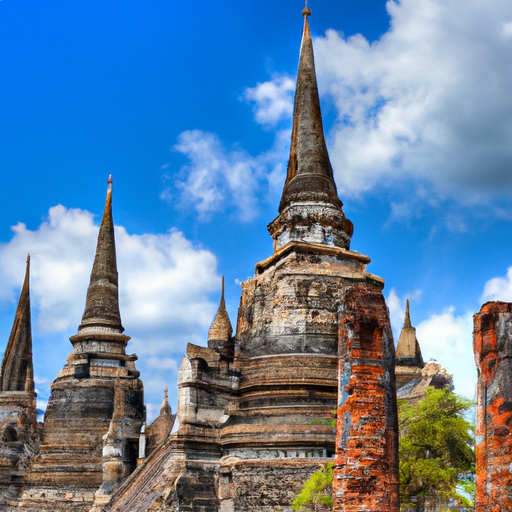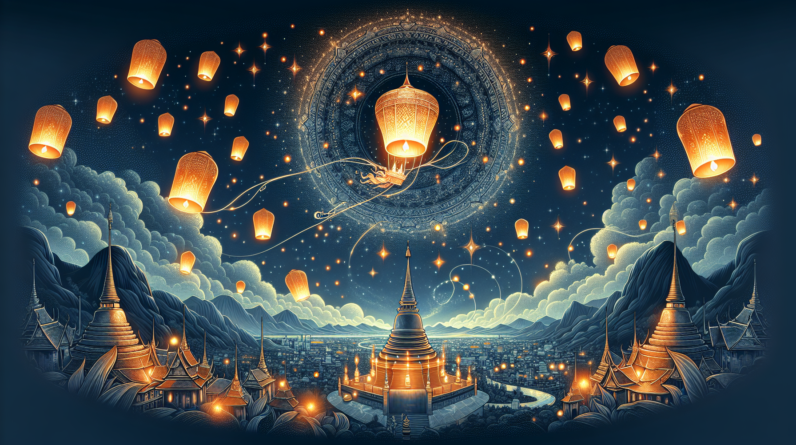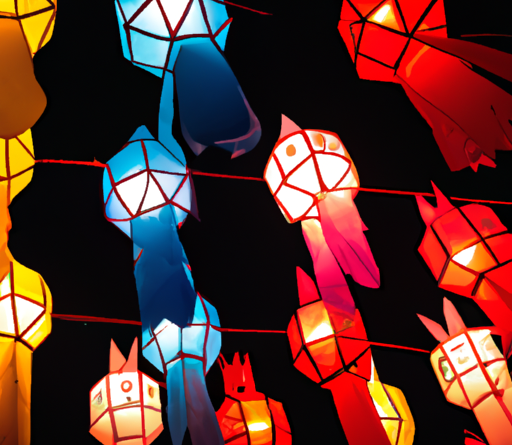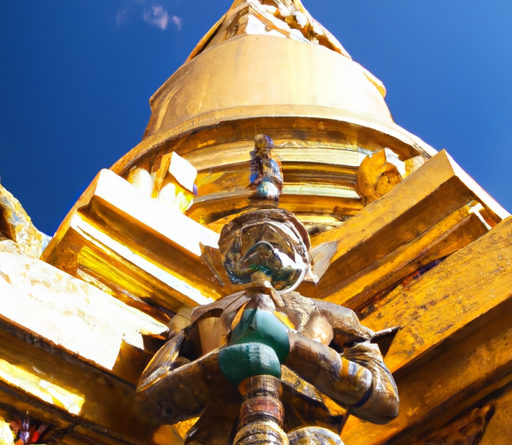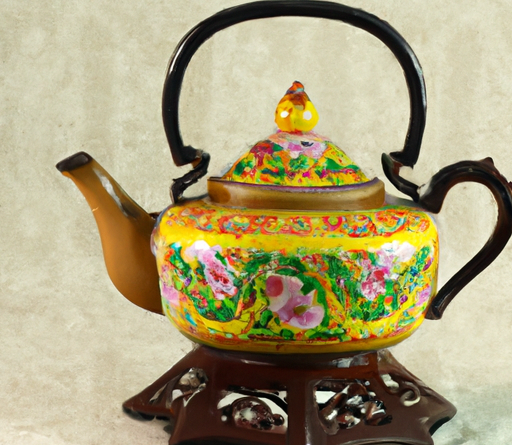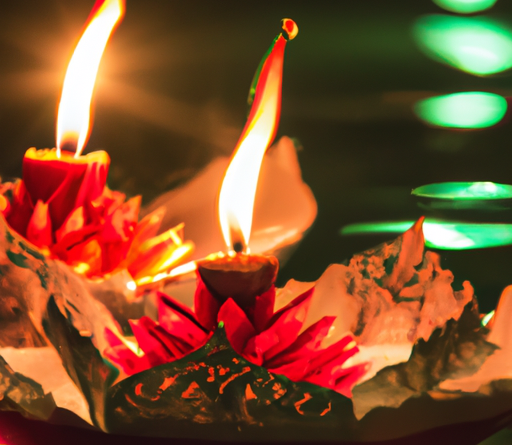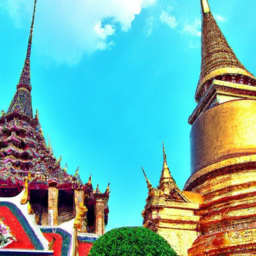
If you are fascinated by the mystique and allure of spiritual sites, then allow yourself to embark on a breathtaking journey through the captivating landscapes of Thailand. Welcome to “Temple Trails: Discovering Thailand’s Most Enchanting Spiritual Sites.” In this extraordinary adventure, you will traverse the mesmerizing pathways that unveil the profound spiritual heritage of this captivating country.
As you delve into the heart of Thailand’s rich cultural tapestry, you will encounter an array of ancient temples, each brimming with mystical stories and historical significance. Awaken your senses as you wander through the ornately adorned corridors, marvel at the intricate details intricately carved into the temple walls, and bask in the tranquil ambiance that envelops every sacred space. From the iconic splendor of Wat Arun to the serene serenity of Wat Phra That Doi Suthep, each temple offers an exquisite glimpse into the spiritual beliefs and practices that have shaped Thailand’s cultural identity. So prepare to be captivated by the ethereal beauty and timeless charm concealed within the diverse Temple Trails of Thailand.
Exploring Thailand’s Rich Spiritual Heritage
Thailand, often referred to as the “Land of Smiles,” is not only known for its stunning landscapes and vibrant culture but also for its deep-rooted spirituality. Thai culture places great significance on spirituality, with temples playing a central role in Thai society. These magnificent structures are not just places of worship, but they are also cultural and historical landmarks that showcase the rich spiritual heritage of the country.
The Importance of Spirituality in Thai Culture
Spirituality is deeply ingrained in the daily lives of the Thai people. Buddhism, the dominant religion in Thailand, shapes their beliefs, values, and way of life. It provides a moral compass and serves as a guide for seeking inner peace and enlightenment. Thai spirituality emphasizes the importance of compassion, kindness, and mindfulness in one’s interactions with others and the world.
The Significance of Temples in Thai Society
Temples, also known as “wats,” hold immense cultural, historical, and spiritual significance in Thai society. They serve as sacred sanctuaries, providing a space for spiritual devotion, meditation, and prayers. Temples also act as centers of learning and community gathering, where people come together to receive teachings from monks, participate in religious ceremonies, and celebrate festivals.
The Diversity of Temple Styles and Traditions in Thailand
Thailand boasts a remarkable diversity of temple styles and traditions, each with its unique architectural features and cultural practices. From the grand palaces of Bangkok to the tranquil retreats of Chiang Mai and the ancient ruins of Ayutthaya, every region in Thailand offers a distinctive temple experience.
Unveiling the Spiritual Gems of Bangkok
In the bustling capital city of Bangkok, spiritual treasures await those seeking a deeper connection with the divine. The Temple of the Emerald Buddha, located within the grounds of the Royal Palace, stands as a testament to Thailand’s rich history and devotion to Buddhism. Its opulent architecture and revered emerald Buddha image make it one of the most visited and revered temples in the country.
For those desiring tranquility amidst the urban chaos, Wat Arun, also known as the Temple of Dawn, offers a peaceful retreat on the banks of the Chao Phraya River. Its iconic prang (tower) adorned with intricate porcelain designs glistens in the sunlight, creating a serene and awe-inspiring atmosphere.
Wat Phra Kaew, or the Temple of the Emerald Buddha, holds great historical and cultural significance. It houses the revered Emerald Buddha, a symbol of Thailand’s monarchy and spiritual heritage. The temple complex, with its intricate carvings, golden spires, and beautifully manicured gardens, is a testament to the craftsmanship and devotion of the Thai people.
Completing the spiritual journey in Bangkok is Wat Pho, known for its massive reclining Buddha statue. This temple offers a serene and contemplative atmosphere, where visitors can marvel at the intricate details of the temple architecture and engage in meditation or traditional Thai massage within its tranquil grounds.
Journeying to Chiang Mai: A Haven of Temples
As one ventures north to Chiang Mai, a city known for its ancient temples and cultural heritage, a treasure trove of spiritual sites awaits. Wat Phra That Doi Suthep, perched on a mountainside overlooking the city, exudes an aura of ancient beauty and mystique. This sacred temple, adorned with golden pagodas and intricate murals, offers breathtaking panoramic views of Chiang Mai and serves as a place of pilgrimage for devout Buddhists.
Wat Chedi Luang, a temple with a rich history dating back to the 14th century, enchants visitors with its imposing ancient chedi (stupa) and serene gardens. The temple complex is a symbol of the proud Lanna Kingdom, and its atmospheric vibe invites contemplation and reflection.
The unique architectural style of Wat Phra Singh showcases the exquisite craftsmanship of the Lanna period. Its multiple structures, including the ordination hall and viharn, exhibit intricate wood carvings, gilded decorations, and ornate statues. This temple provides a glimpse into the rich artistic heritage of northern Thailand.
For those seeking a more introspective experience, Wat Umong, nestled in the embrace of lush forests, offers a serene and secluded retreat. Its underground tunnels and tranquil grounds provide a quiet space for meditation and self-reflection, away from the bustling city life.
Exploring Northern Thailand’s Spiritual Sanctuaries
Northern Thailand, with its mist-covered mountains and tranquil landscapes, is home to several spiritual sanctuaries that enchant visitors with their mystical aura. Doi Suthep-Pui National Park, surrounding the sacred Doi Suthep Temple, offers a unique blend of natural beauty and spiritual significance. As visitors ascend towards the temple, the sound of chanting monks and the aroma of incense permeate the air, creating a spiritually uplifting experience.
Wat Rong Khun, or the White Temple, stands out as a modern masterpiece amidst the traditional temples of Thailand. Built by renowned artist Chalermchai Kositpipat, this stunning temple blends traditional Buddhist symbolism with contemporary art, inviting contemplation and reflection on the impermanence of life.
Deep in the heart of Nan province lies the hidden gem of Wat Phumin. Its distinctive architecture, adorned with intricate carvings and murals depicting local legends and folklore, reflects the unique blend of Thai, Lao, and Burmese cultural influences. The peaceful ambiance of this temple transports visitors to a bygone era of tranquility and spiritual devotion.
Wat Chiang Man, the oldest temple in Chiang Mai, offers a glimpse into the city’s rich history and spiritual traditions. Its ancient chedi, dating back to the 13th century, and the revered Crystal Buddha image are relics of a bygone era. This temple serves as a testament to Chiang Mai’s cultural heritage and the enduring spirituality that has shaped its identity.
Uncovering Southern Thailand’s Spiritual Wonders
While Southern Thailand is best known for its stunning beaches and crystal-clear waters, it is also home to spiritual wonders that captivate the soul. Phra Boromathat Chaiya, located in the province of Surat Thani, holds great spiritual significance for the local population. This ancient pagoda, believed to house relics of the Buddha, draws devotees seeking blessings and spiritual solace.
Amidst the limestone cliffs of Krabi province, Wat Tham Sua, or the Tiger Cave Temple, offers a spiritual retreat amidst nature’s grandeur. Ascending the steep steps to the temple complex not only tests one’s physical endurance but also presents an opportunity for introspection and self-discovery. The panoramic view from the temple’s summit rewards visitors with a sense of accomplishment and a deep connection to the natural world.
Wat Khao Rang, nestled on a hill in Phuket, offers a peaceful and serene escape from the bustling tourist destinations. Its ornate pagoda, impressive Buddha statues, and well-manicured gardens create an atmosphere of tranquility and spiritual contemplation.
In the ancient city of Nakhon Si Thammarat, Wat Mahathat stands as a testament to the region’s rich cultural heritage. This historical temple, dating back over a thousand years, showcases a blend of local and Srivijayan architectural styles. Its intricate designs and historical artifacts provide valuable insights into the kingdom’s past and the evolving nature of Thai spirituality.
Discovering the Sacred Temples of Ayutthaya
No exploration of Thailand’s spiritual heritage is complete without a visit to Ayutthaya, the ancient capital of the Kingdom of Siam. This UNESCO World Heritage Site is home to numerous temples, each with its unique story and architectural splendor.
Wat Mahathat, known for its iconic Buddha head entwined in the roots of a tree, offers a hauntingly beautiful sight. This mysterious masterpiece of nature has become a symbol of Ayutthaya’s majestic past, where nature and spiritual devotion intertwine.
Wat Phra Ram, with its sprawling ruins and towering prangs, transports visitors to a bygone era of grandeur and artistic expression. This temple complex, once a royal palace, stands as a reminder of the city’s former glory and the enduring legacy of Thai architecture.
Wat Phra Si Sanphet, the largest temple in Ayutthaya, reflects the architectural marvels of the ancient kingdom. Its impressive row of chedis, with their exquisite design and intricate details, evoke a sense of reverence and wonder. Visitors can bask in the immersive historical experience and appreciate the achievements of the past.
Amidst Ayutthaya’s myriad of temples lie hidden gems, waiting to be discovered by avid explorers. Whether it be the serene ambience of Wat Ratchaburana or the enchanting ruins of Wat Chaiwatthanaram, each temple holds a story and a unique glimpse into an ancient civilization.
Venturing to Other Spiritual Sites in Thailand
Thailand’s spiritual essence extends beyond its major cities, offering a myriad of sacred sites waiting to be explored. In the ancient city of Lampang, Wat Phra That Lampang Luang stands as a testament to the region’s rich history and spiritual heritage. This magnificent temple, encircled by a fortified wall, is revered by locals and tourists alike for its architectural beauty and cultural significance.
On the tropical island of Koh Samui, Wat Phra Yai, also known as the Big Buddha Temple, welcomes visitors with its imposing golden Buddha statue. This iconic landmark invites contemplation and reflection, while the panoramic views of the island’s coastline provide a breathtaking backdrop for spiritual introspection.
For those visiting Phuket, the Three Kings Monument offers a fascinating blend of different religions and cultures. This monument, commemorating the three founding fathers of Phuket, symbolizes the harmonious coexistence of Buddhism, Taoism, and Islam. It serves as a testament to Thailand’s cultural diversity and religious tolerance.
The northern province of Lampang is home to Wat Chaloem Phra Kiat, a temple perched on a mountaintop. The breathtaking panoramic views and the tranquil atmosphere make it a perfect destination for those seeking spiritual solace and a connection with nature.
The Traditions and Rituals within Thai Temples
Thai temples are not merely architectural marvels but also living institutions that preserve ancient traditions and religious practices. Monks play a central role in Thai temple ceremonies, guiding and inspiring the local community. They lead prayer sessions, perform rituals, and impart spiritual teachings to seekers of wisdom and enlightenment.
Merit-making rituals are an integral part of Thai temple culture. Devotees engage in acts of generosity, such as offering alms to monks, donating to temple funds, and participating in charitable activities. These acts are believed to accumulate “merit” and bring blessings, both in this life and the next.
Meditation and mindfulness are key practices within Thai temples. Visitors are often encouraged to participate in meditation sessions or simply find moments of stillness and reflection amidst the hustle and bustle of daily life. These practices promote inner peace, mental clarity, and a deeper connection with oneself.
Buddhist festivities, such as Songkran (Thai New Year) and Loy Krathong (Festival of Lights), are celebrated with great fervor within temples. These celebrations involve colorful processions, traditional performances, and ceremonies that symbolize the renewal of spiritual energies and the gratitude towards the divine.
Preserving and Restoring Thailand’s Temple Heritage
As Thailand’s temple heritage faces the challenges of time and urban development, numerous organizations are dedicated to their preservation and restoration. These organizations collaborate with local communities, scholars, and government bodies to safeguard the cultural and spiritual treasures held within the temples.
Preserving ancient temples poses several challenges, including the need for ongoing maintenance, protection from natural disasters, and the prevention of theft and vandalism. The delicate balance between restoration and the preservation of historical authenticity is a constant consideration when safeguarding these architectural wonders.
Sustainable tourism plays a significant role in the conservation of Thailand’s temple heritage. By promoting responsible travel practices, educating tourists about cultural sensitivities, and emphasizing the importance of preserving these sites, sustainable tourism ensures that future generations can continue to appreciate and learn from these spiritual sanctuaries.
Collaboration between local communities and governing authorities is crucial in temple preservation efforts. Engaging the local population in restoration projects fosters a sense of ownership and pride in preserving their cultural heritage. By working hand in hand with authorities, locals can contribute their knowledge and expertise, ensuring that temple restoration efforts are carried out with care and authenticity.
Embracing Thailand’s Spiritual Essence
Embarking on a journey to explore the spiritual sites of Thailand is not merely an external exploration but also an inward journey of self-discovery. Travelers often have profound personal experiences and spiritual awakenings during their visits to these sacred places. The serene atmosphere, intricate architecture, and profound spirituality combine to create a transformative experience for those seeking solace and enlightenment.
The impact of temple visits on one’s well-being is profound. The calming presence of these sacred sites provides a respite from the stresses of everyday life, allowing visitors to reconnect with their inner selves and find a sense of peace and harmony. Temple visits often leave a lasting impression on the hearts and minds of those who experience them.
Thailand’s spiritual essence extends beyond temple visits. The country is home to numerous spiritual retreats and meditation centers where visitors can embark on a deeper quest for self-discovery and inner peace. These retreats offer guided meditations, mindfulness practices, and teachings from experienced spiritual practitioners, providing a supportive environment for personal growth and transformation.
Thai spirituality, with its emphasis on compassion, kindness, and mindfulness, permeates all aspects of life. The spiritual essence of Thailand promotes tolerance, understanding, and harmony among individuals and communities. It serves as a reminder of the deeper connections that unite us all, transcending cultural boundaries and fostering a sense of global interconnectedness.
In conclusion, exploring Thailand’s spiritual heritage is a journey that unveils the country’s rich cultural tapestry and deep-rooted spirituality. From the grandeur of Bangkok’s temples to the tranquil retreats of Chiang Mai, from the mystical aura of northern Thailand’s spiritual sanctuaries to the spiritual wonders of the south, every region offers a unique experience for those seeking spiritual solace and enlightenment. Embarking on this spiritual exploration not only opens pathways to personal growth but also fosters a deeper appreciation for the diverse traditions and rituals that shape Thai society.
